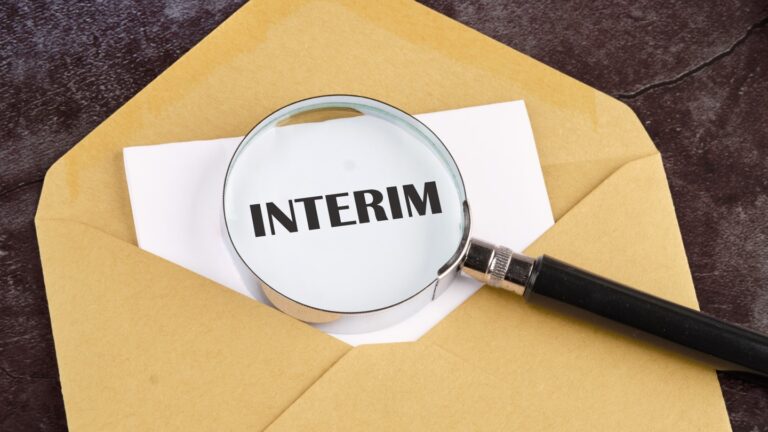
Life after Brain Injury: From Coma to Life Coaching
It’s undeniable that brain injury is a life-changing event, regardless of who it happens to. In my many years of representing clients who have survived a brain injury, I quickly came to learn that no one situation is ever like another and that brain damage comes in all different shapes and sizes. However, there are some things that most survivors will relate to: one of them being the key role that neurorehabilitation plays, the other – the importance of regaining control and independence.
Life can, and often does, go on after brain injury. This isn’t linear, but with the right support and tools, I’ve seen many of my clients adapt to the ‘new’ them; learning to manage their symptoms and get back to socialising and work. It’s important that brain injury survivors are given every opportunity to get their lives back on track, and there is no better way to reassure someone who is, perhaps, currently struggling at the start of their journey than to show them an example of someone who’s been there, done that and found a huge light at the end of the tunnel.
In 2017, I was very fortunate to meet Tony Palluotto. At the time, he was a Peer Support Worker at Headway East London, a Hackney-based charity supporting brain injury survivors and their families. He was ultimately in this role for two years, prior to which he’d spent five years volunteering for them.
In 2007, Tony suffered a brain injury after being hit by a car. At the time, he was working full-time in a corporate role and also had a busy family life. He was in a coma for weeks and then received extensive neuro-rehabilitation which he then followed up with a lot of personal work on managing his symptoms, gaining new skillsets and seeking to help others.
Tony and I were introduced by Marilene Antoni, my former colleague who was mentoring Tony at the time. I then began mentoring Tony and we worked together for around 18 months. We regularly met up to work through whatever was going on at the time in his life. We also collaborated on some projects, including a presentation that Tony gave to my brain injury lawyer colleagues about communication difficulties for those with neurological impairments. The presentation noted issues we should consider with our clients and tips and tricks on how to support those who may struggle with communication because of their injury. It was so helpful hearing this from someone who could tell us exactly what most of our clients were probably going through.
At the end of 2018, our mentor/mentee relationship came to an end when Tony became a Trustee for Headway East London. He’s continued to work hard to support their members, raise awareness and fundraise. He is a real asset to the charity, having both been a survivor of brain injury and someone who now works to help others. We continue to be friends and enjoy collaborating on projects to raise awareness of brain injury.
In addition to his work with Headway East London, Tony also works as a life and wellness coach and mentor. He undertook the necessary training for this after recovering from his brain injury and has already worked with a number of clients including those who have survived a brain injury or stroke, such as Alisha Malhotra, ambassador for the Stroke Association, and former UK and European boxing champion, Errol Christie.
Having spoken with Tony about this role, I’ve always felt that that life coaching would be so helpful for most people, but specifically those recovering from a brain injury. However, I think most people don’t necessarily think of this as part of their neuro-rehabilitation and may have questions about it.
To help answer some of those questions, I asked Tony whether he would be interested in doing a joint piece, talking about his experience of surviving a brain injury and what life coaching can offer to those with (and without) a brain injury. Tony was kind enough to agree and our discussion is below:
Hi Tony! I’ve heard of the term ‘life coach’ before, but I’m not really sure what it means. What does a life coach do? What can someone expect to get out of having a life coach?
Coaching assists a client to bridge the gap between where they are now, to where they would like to be, far more effectively than if they worked alone.
A coach achieves this by raising the client’s awareness, using powerful questioning techniques, so they can be clear on their goals. The client’s values and beliefs are looked at, in a non-judgemental approach. The coach helps them with the creation of action plans, to reach their goals, which can be measured. The client is provided with ongoing support through any obstacles and challenges, along with providing them the tools and strategies to ensure lasting change.
After the goal has been achieved, their progress is reviewed, to ensure consistency and continued effectiveness.
I see! That makes it a lot clearer, thank you. You’ve been really successful in this role, what made you initially want to be a life coach?
Through my recovery process I was fortunate to build extensive, varied and valuable skills in the area of health and wellbeing. After many years supporting charitable organisations in a voluntary capacity, like Attend ABI (Acquired Brain Injury), Headway East London, Aphasia Re-Connect and several others, I was looking for a method to share this knowledge for the wellbeing of others, who are starting their own journey of recovery.
You are a brain injury survivor yourself, and now work with others who are recovering. Could you tell us a bit about your journey, and what helped you most with your short and long-term recovery/neuro-rehabilitation?
My recovery was much about my resilience and determination, complemented by the support around me, from family, friends, work and health professionals.
I underwent extensive rehabilitation at The Wellington Hospital. My rehabilitation involved learning to walk, talk, taste and smell again, amongst many other challenges. In 2019 I had the pleasure of becoming a PR Patient at the 20th Anniversary of the Acute Rehabilitation Centre at the Wellington Hospital.
I am a regular Vedic meditation advocate after discovering the London Meditation Centre early on in my recovery and benefit from the calm focus it brings, alongside practising yoga.
With a personal interest in the recovery process and following periods of voluntary work for organisations such as Headway North London, Friends of Attend ABI and Headway East London I became a trustee for all three.
Understanding more about the process now, I can see that everyone could benefit from a life coach, but how, particularly, does it help those who are recovering from a brain injury?
Life coaching works to understand the challenges that the client is facing in an empathetic way, helping them to manage the process. I use the skills and knowledge from my lived experience, which have been refined and adapted to a professional coaching process.
Through life coaching I can help people post brain injury/stroke to identify a vocation they have within themselves, to work towards as part of their recovery process. It is a unique coaching niche which I am pleased to have.
Coaching involves raising awareness of the challenges they face in order to help them find tools to overcome them. My aim is for the coaching to compliment any rehabilitation programmes the client may be participating in.
What is one misconception about coaching that you’d like to clarify?
It is not offering advice, but trying to get the client to find the right options for themselves.
A quote from Galileo sums this up, “You cannot teach a man anything: you can only help him find it within himself”.
Brain injury survivors might struggle with symptoms like fatigue, aphasia or dysarthria – could someone with symptoms like that still benefit from life coaching?
Most definitely, however they would use their own methods and thought processes to deal with the challenges. It would be the coach’s role to help the client identify these challenges.
I have developed an increased empathy and understanding for people going through the recovery process.
For example, I can offer alternative means of communication such as use of written words or symbols, and recognise a client may need additional time to formulate responses.
I have worked with a number of consultants and organisations to raise awareness and offer insight into communication difficulties and fatigue, drawing on my personal experience.
You have worked both in a corporate environment and in a charity, so you know what it’s like to be busy! How does life-coaching work for those who lead busy lives? Do they have to dedicate a lot of time to the process? Can it be flexible?
It can be quite flexible and will always happen at the client’s own pace.
Every client is different and depending on their flexibility we will develop an action plan together, which will enable them to reach their goal(s).
Tony, you’ve been fantastic! Thank you so much for your time in helping us understand more about life coaching, and how this can really help those who have suffered a brain injury. It’s also been really helpful to hear from you about what helped you in your recover from brain injury. If someone is interested in life coaching, what’s the best way for them to get in touch with you?
It has been a pleasure to share my thoughts on this topic and I would like to thank Ipek Tugcu, and all at Bolt Burdon Kemp, for their support in this.
If you would like to know more about my coaching experience and services offered, please feel free to contact me using the details below:
Website: https://www.tplifecoachingconsultancy.co.uk/about-me
Tel: 01707 684895










